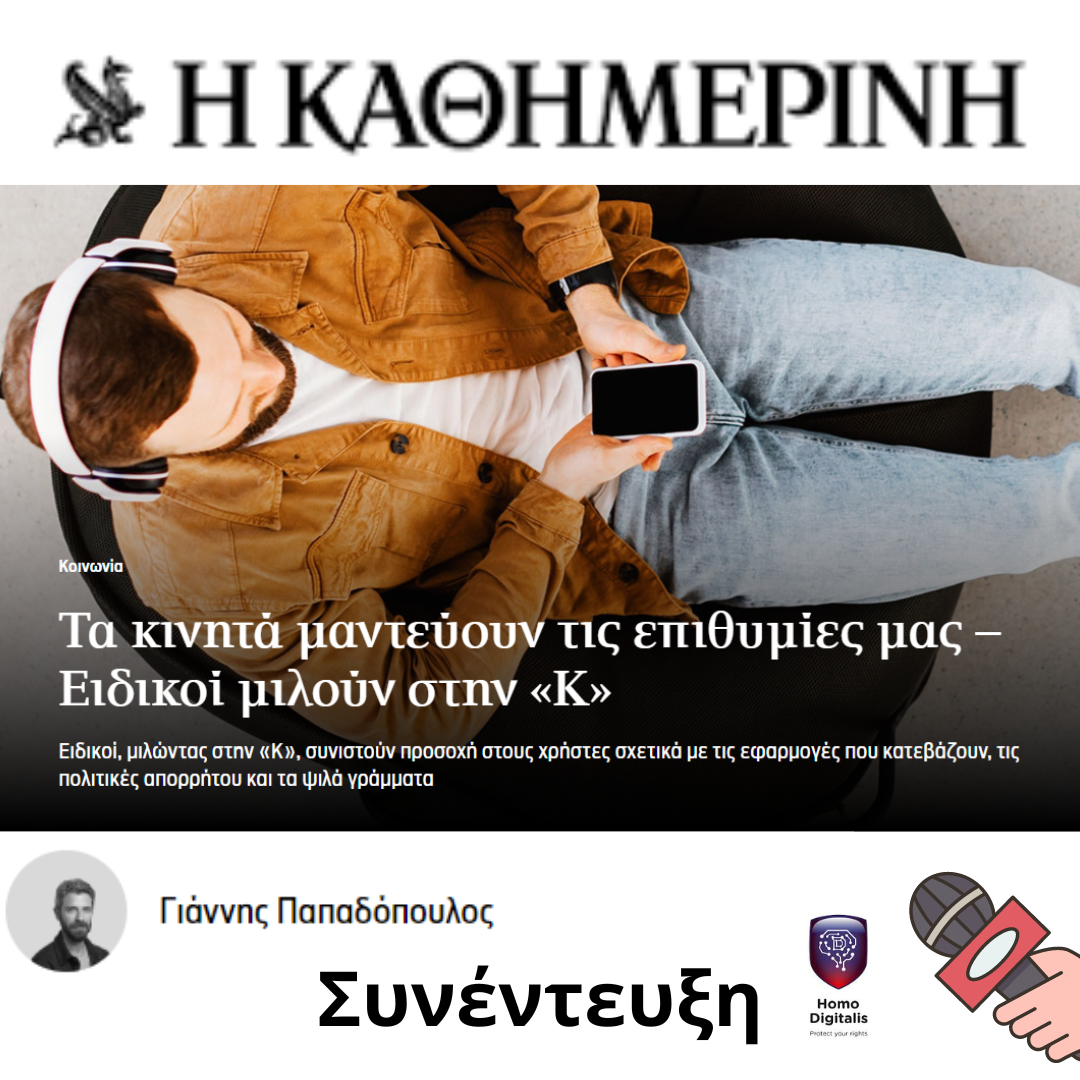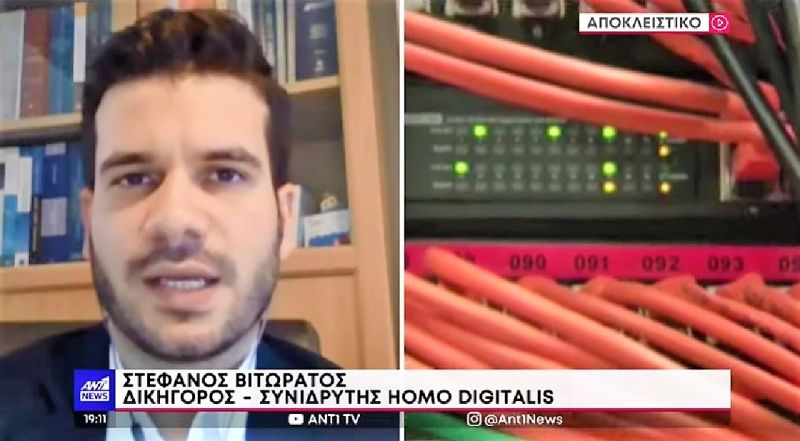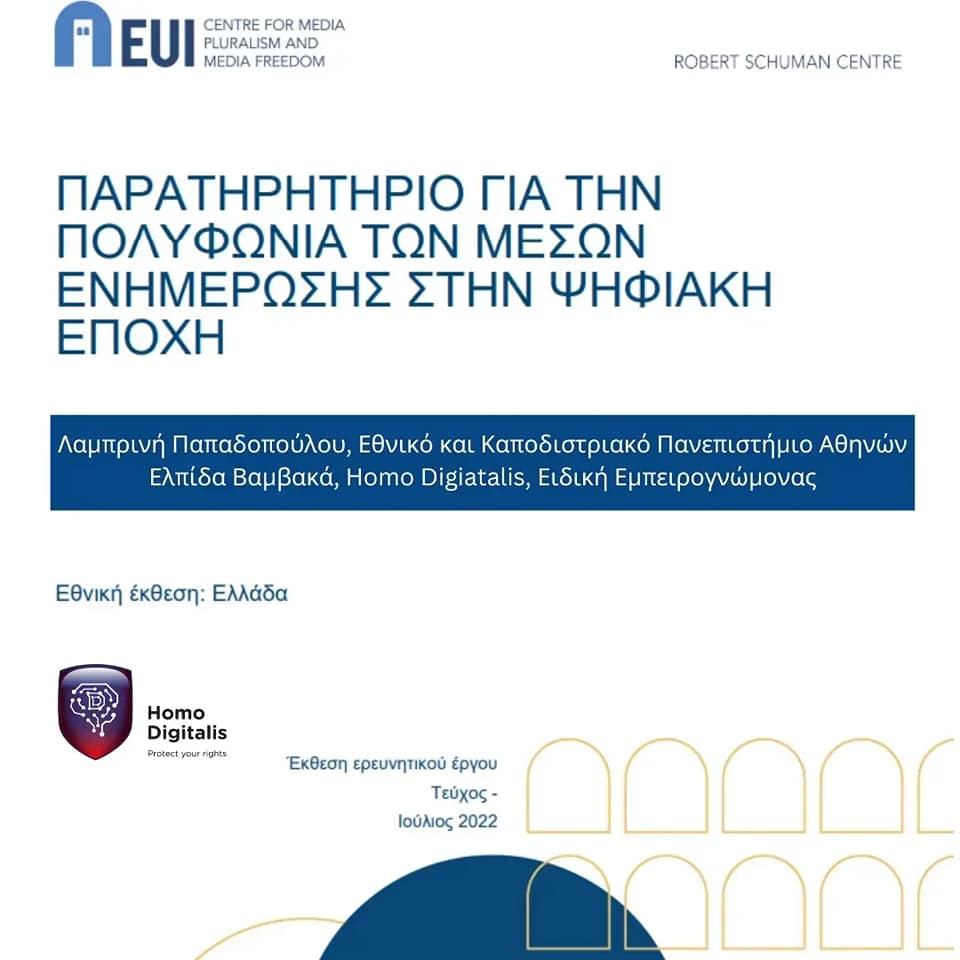Statements by Homo Digitalis in Kathimerini on speech recording and online advertising
Journalist Giannis Papadopoulos in his article for Kathimerini newspaper discusses the recent revelations about the “Active Listening” function of the advertising company Cox Media Group.
Specifically, in a corporate presentation trying to promote this feature to its customers, Cox Media Group claimed that it could “eavesdrop” on conversations of users of mobile phones and other smart devices and with the help of artificial intelligence create targeted ads. The Company’s existing customer base includes major technology companies, including Facebook, Google and Amazon.
Lamprini Gyftokosta and Eleftherios Chelioudakis provided statements for Homo Digitalis to the reporter regarding both mobile phone settings and the challenges that arise in protecting the personal data and privacy of users through the dark patterns used by the tech giants.
We are very grateful to the journalist for his interest in our posts. You can read his article here.
In a related article-opinion hosted by Kathimerini newspaper and co-authored by Lillian Mitrou, Professor at the University of the Aegean and Vassilis Karkatzounis, PhD candidate at the University of the Aegean, important observations are provided regarding the challenges arising from the application of legislation in the complex environment of online advertising. You can read the article here.
Finally, we recall that as early as 2020, Homo Digitalis has already taken strategic legal action at the European level with our complaints against Google and IAB Europe in the context of their intrusive practices of targeted behavioural advertising. Our cases are pending before the Irish and Belgian authorities respectively and we expect decisions on these cases to be issued shortly. You can read more here.
Letter from Homo Digitalis before NCRTV on the obligations arising from Regulation 2024/1083
On September 3, Homo Digitalis submitted an open letter (no. 4844-3-9-24) to the The National Council for Radio and Television (NCRTV), in which it raised two (2) questions regarding the application of the provisions of Article 25 of Regulation 2024/1083 on the establishment of a common framework for media services in the internal market.
In particular, as stipulated in Article 25, par. 2-3, the competent independent authorities in the Member States shall monitor and submit an annual report on the allocation of public advertising expenditure to media service providers and online platform providers. Those annual reports shall be made publicly available in an easily accessible format and shall be based on the information made public on an annual basis by electronic and user-friendly means by public authorities or entities that have incurred public advertising expenditure.
This information shall include at least:
(a) the official names of the media service providers or online platform providers from which services have been purchased,
(b) where applicable, the official names of the business groups to which any media service providers or online platform providers belong; and
(c) the total annual amount spent and the annual amounts spent per media service provider or online platform provider.
In view of the above, Homo Digitalis submitted the following two (2) questions before the NCRTV:
1 ) Has the NCRTV proceeded with the publication of the relevant annual report for the year 2023 regarding the allocation of state advertising expenditure to media service providers and online platform providers? If the NCRTV does not have the relevant competence, before which body should we appeal?
2) Does the NCRTV know whether public authorities or entities which have incurred expenditure on state advertising have complied with their obligation to publish annually by electronic and user-friendly means the information detailed in Article 25(2) of Regulation 2024/1083? In what ways could we as civil society monitor the respective activities of public authorities/entities in order to assist you in your work and inform you of any shortcomings in their compliance?
We hope to receive an answer to our questions soon.
New Book: #FakeYou – Don’t blame the people; don’t blame the Internet. Blame the power
Our friends from the digital rights civil society organization Xnet published recently the book “#FakeYou – Don’t blame the people; don’t blame the Internet. Blame the power”.
The book’s lead author is Simona Levi, while it is the activist’s guide to defeating fake news and blocking policies that use disinformation to curtail civil rights and freedoms.
You can freely read and download the book here.
We spoke on Ant1's Main Newscast
Stefanos Vitoratos, representing Homo Digitalis, participated in a report for the main newscast of ANT1 regarding the recent DDoS attack against the Subject Bank of the Institute of Educational Policy.
“Cyber attacks should be considered part of everyday life as we invest in the digital transformation of the state. This attack was simply a wake-up call on the need to protect critical infrastructure,” the release said, among other things.
You can view the relevant excerpt here. We thank ANT1 for including and reporting on our actions.
We participate in the Media Pluralism Monitor study of the European University Institute (EUI)
Elpida Vamvaka, president of Homo Digitalis, participated for the second year as an expert in the Media Pluralism Monitor 2022 survey!
The study highlights the risks to media pluralism and freedom in four areas: Fundamental Protection, Market Pluralism, Political Independence and Social Inclusion.
The Media Pluralism Monitor 2022 is implemented by the Centre for Media Pluralism and Media Freedom and is a scientific attempt to map the threats to pluralism and media freedom in the Member States of the European Union and in some candidate countries, taking into account legal, political and economic variables.




